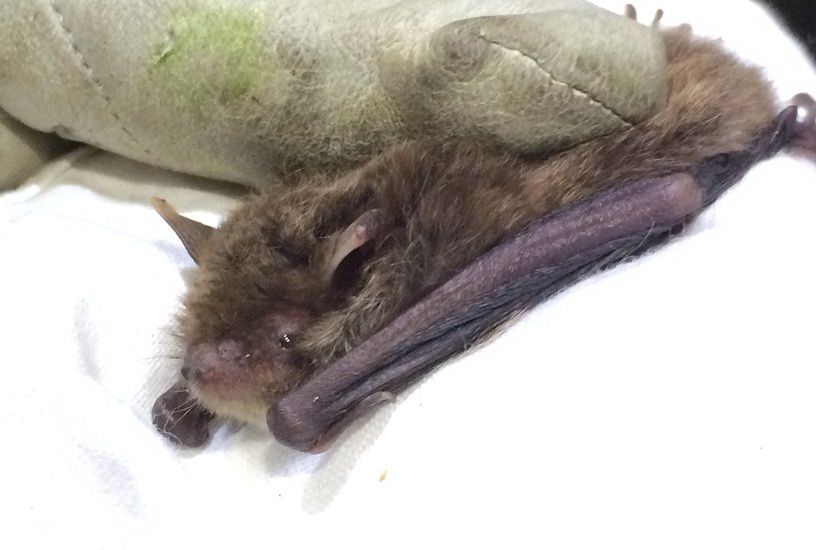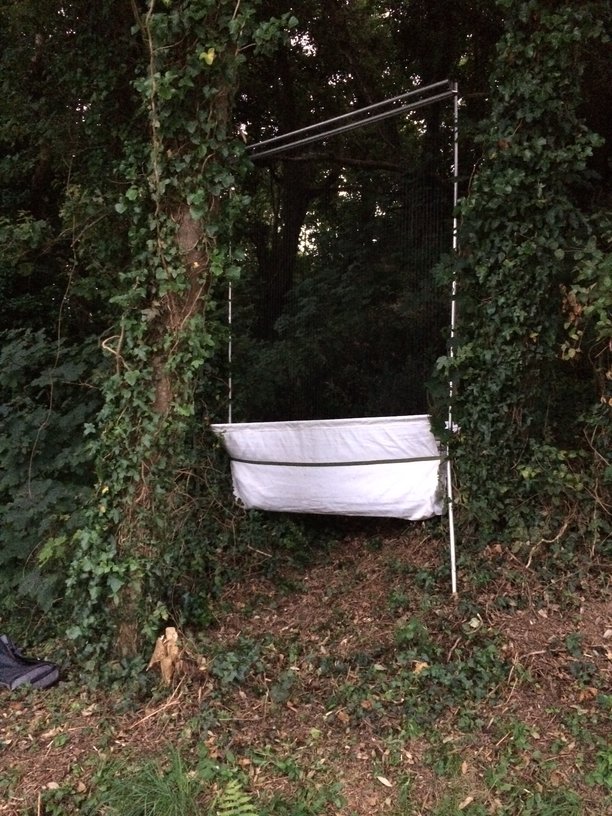

A team of conservationists have swooped in to find another new species of bat hanging out in St Ouen's.
The Jersey Bat Group caught a Daubenton's bat flying over the reservoir at Val de la Mare - the first of these European bats ever recorded in the Island.
The male bat, a species fairly common on the mainland, was spotted during a week-long bat hunt with experts from the UK's Bat Conservation and Research Unit who were over here teaching the local group some different survey techniques.
Bat Group volunteer and researcher Annika Binet said: "It was caught in a harp trap and basically they have very large hairy feet like a hobbit. It’s another Myotis species of bat and it specialises in feeding over water. We suspect it's part of a male-only colony with a maternity roost in France. They have a very large range, hence why they can go from France and back without too many problems."

It’s the second exciting find for the Group who swooped in on a rare European bat - the 'Myotis alcathoe' who they found hanging out in St Catherine's Woods in May.
Annika said she was up all night searching for bats most nights with the BatCRU while they were overand didn't go to bed after one bat hunt until 8.45 am but said it was a great week for bat conservation. Not only did they discover the new species, they also came across the first tree roost sites in Jersey.
The group caught one female brown long-eared bat at Grève de Lecq and a Natterer's bat in St Catherine's Woods and fitted them both with radio tags. They were then able to track them down and find the trees they were roosting in. The bats were then picked up on infra-red camera equipment coming out of the tree roosts after sunset when the team could count all the bats in each maternity roost.
Chair of the Jersey Bat Group, Dr Amy Hall, said: "This is a very important discovery which will likely lead to a change in woodland management and arboricultural practices in order to protect tree-roosting bats."
The Jersey Bat Group are working on a five year project to try to discover what bats are living in our woods.
Annika said: "Our main aim is to get our species list together and determine the breeding status so that's our initial phase of the project and then once we've done that we can look more carefully at the species and their foraging and roosting habitat."
(Picture credit: Dr Amy Hall)
Comments
Comments on this story express the views of the commentator only, not Bailiwick Publishing. We are unable to guarantee the accuracy of any of those comments.